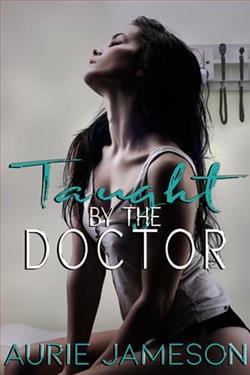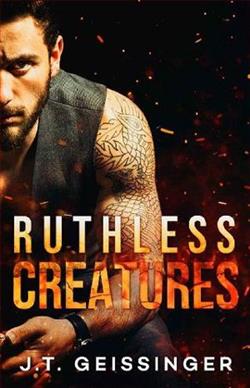Page 73 of Wicked Beautiful (Wicked Games 1)
She turns from the sink, eyes glittering. “He’s the father of that puto bendejo who gave you a stroke, that’s why!”
Suddenly exhausted, I blow out a hard breath. “It wasn’t a stroke, mama.”
“Atrial fibrillation, heart disease, whatever! He’s the one who caused it! You’re healthy as a horse until he dumps you like a bad habit, and then you have to take medicine every day because your heart fell apart? It’s his fault!”
In all likelihood, I’d had the heart condition from birth, but it went undetected. It took a “mitigating event,” as the doctor put it, to uncover the problem. But for my mother, the mitigating event was and will always be Parker Maxwell.
Just one more mark to add to his tally of doom.
“Either way, I’m looking into both of them. It’s only a matter of time before I dig something up.” I stand and go to her, wrapping my arms around her frail shoulders. “And then I’ll even the score. OK?”
It takes a few long moments before the tension begins to fade from her body. Finally she sighs and pats my back. “I’m sorry, mija. I don’t mean to shout. I’m tired today.”
“It’s OK,” I whisper, staring over her head through the window and out into the yard. “I’m tired, too.”
She pats my back again, withdraws from my arms, goes over to the big pot on the stove and starts to ladle the rest of the soup into the freezer-safe plastic containers stacked ready on the counter. Keeping her back to me, she says, “We’ll go by the school tomorrow afternoon. Clean sheets and towels are in the hall closet. Truck’s got a full tank if you need it.”
There’s more to be said—there’s always more—but I simply nod and push away from the counter. I wander through the living room and down the hall, pausing to look at the faded pictures of my brother and me, framed in cheap plastic frames and hung on tacks stuck through the wallpaper. In pictures, the progression of his disease is painfully clear: crutches, wheelchair, hospital bed with metal rails. I’d almost forgotten how angelic his smile was.
So many old ghosts. I wonder if they’ll ever let me go.
With a painful flutter in my chest, I turn away from the pictures. I take my duffel bag into the room I used to call my own, change into jeans and a T-shirt, shrug on a jacket, wind a scarf around my hair and don my big black sunglasses, and grab the keys to my mother’s truck.
Then I go for a drive in the chilly Texas afternoon to revisit all the p
laces that still haunt me.
* * *
The next day at ten after three, my mother and I sit in a parking lot, watching the outpouring of students that bursts from the school doors after the end-of-day bell.
The school is a good one—a private one—a sprawl of red brick and majestic white columns set on a lush, landscaped green hill on the good side of town. It looks like something out of a movie set. Like a spy, I’m peering at it through a pair of binoculars.
“We’re too late! We missed her!”
In the passenger seat, my mother squints into the bright afternoon sun. “No, she hasn’t come out—” Suddenly she clutches my arm and points. “There!”
I follow the direction she’s pointing, and my heart stops dead in my chest.
Emerging from the shadows of the building into the warm afternoon sunlight is a girl. She’s tall, honey-blonde, leggy, dressed in the school uniform of white shirt and navy plaid skirt, carrying a stack of books in one arm.
My daughter—my beautiful daughter, the beautiful stranger—lifts her hand to shade her eyes from the sun.
My voice choked, I say, “She’s so tall. When did she get so tall?”
“Children grow like weeds. The last time you saw her she was, what? Ten? Now she’s fifteen. A young woman.”
Fifteen. The age I was when I met Parker.
Two years before my life imploded.
I lift the binoculars and stare through them again. Viewed closer, Eva is even prettier. She has her father’s dimples, his easy, long-limbed grace. I watch breathlessly as she waves to a few friends, then skips down the steps, turns a corner, and disappears.
It’s not until I take the binoculars from my eyes that I notice the wetness on my cheeks.
My mother and I sit in stifling silence until I can compose myself. She politely keeps her gaze turned away. After most of the cars have left the parking lot and the doors to the school have been shut, she says quietly, “Robert died.”
My head jerks around. I stare at her. “Eva’s adoptive father? When?”















